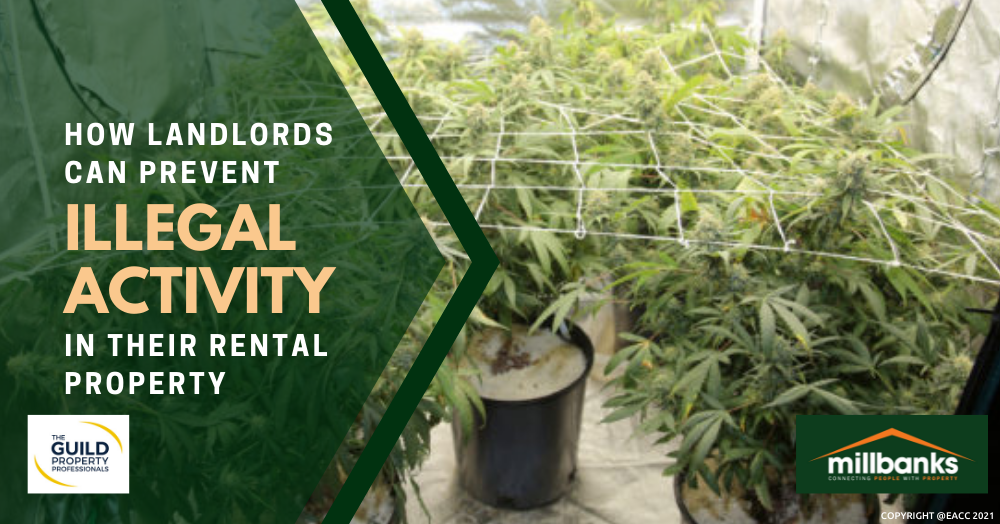This two-minute read looks at how landlords can keep their property safe from criminals and dodgy dealers.
Every landlord has lost sleep worrying about what goes on in their rental property when they’re not around.
There’s always a flicker of fear that a tenant – no matter how trustworthy they seem – might turn out to be a nightmare and cause damage to the property.
But carpet stains and chipped paint could be the least of a landlord’s worries in the scheme of things.
If criminals use your property for illegal activity, you could wind up with an expensive repair bill and a starring role in a court case. (And if the property is designated a crime scene, it could be off-limits for weeks while police investigate.)
While most tenants are law-abiding citizens, with criminals employing ever more sophisticated tactics, it’s worth being on your guard.
Rental properties are sometimes used for:
- Drug production. Over the past 20 years, there’s been a steady increase in the use of domestic properties for cannabis farms or meth labs.
- Drug dealing.
- People trafficking.
- Gambling dens or the sale of illicit cigarettes and alcohol.
What to do if you’re suspicious
Don’t bury your head in the sand. If the authorities can prove you were aware of the illegal activity taking place at your property but took no action, there could be severe repercussions.
Contact the relevant authority and keep a note of what you’ve seen or heard (but don’t play detective, leave that to the experts).
Look out for
- Tenants with long, convoluted stories as to why they can’t show you the appropriate ID.
- Tenants who install their own deadbolts, CCTV or alarms, and are dead against you arranging a planned property inspection.
- Blacked-out windows and unusual smells. Meth labs can smell like cat’s wee, while cannabis farms have a distinctive, sweet odour.
- Changes to the wiring (cannabis farmers often rejig it to bypass the electricity meter).
Proactive steps
- Have a rigorous tenant screening process.
- Run a mile from tenants offering to pay several months’ rent in advance in cash.
- Carry out regular inspections.
- Do things by the book. Criminals are looking for landlords who are lax or absent.
- Build good relations with the neighbours. They could be the first to notify you if something fishy is going on.
- Trust your instincts.
If this all feels like a tall order, you could get an experienced letting agent to manage your property.
That way, you can sleep easy knowing that your investment is safe.
From all of us here at MILLBANKS, don’t have nightmares and thanks for reading.
